Two prominent retail chains — J.Crew Group Inc. and Neiman Marcus — helped push the U.S. leveraged loan default rate in that struggling sector to 10.34%, a record high that, amid the catastrophic impact of the coronavirus pandemic, will almost certainly continue to climb.
By comparison, the default rate of the broader, $1.2 trillion leveraged loan asset class remains below historical averages, at just 2.53%, according to the S&P/LSTA Loan Index.
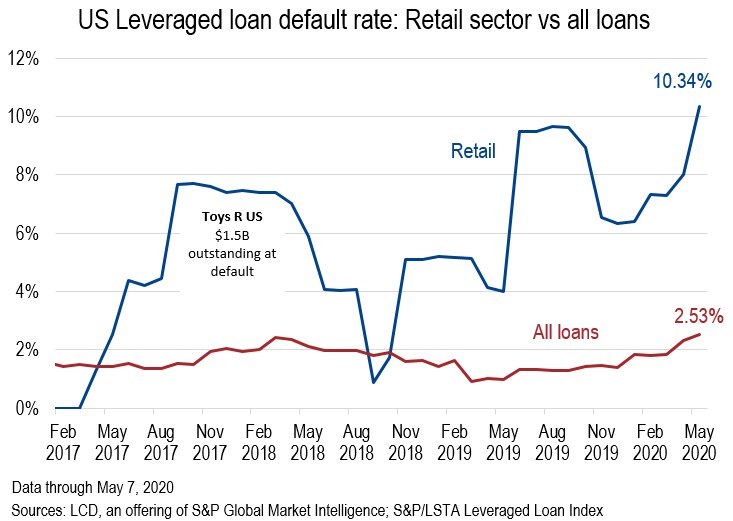 |
Over the last 12 months five retailers have defaulted across seven term loan facilities, totaling $4.9 billion, or 16% of all default volume across all sectors, according to the Index. Retail makes up just 3.6% of all Index loans.
Retail riled
Even from this record high, retail defaults are expected to climb substantially as brick-and-mortar concerns, already reeling from well-flagged headwinds, including e-commerce competition and declining foot traffic, have been dealt a brutal blow by the pandemic. Prolonged store closures and declining economic activity, which have resulted in a devastating loss of revenue and considerable cash burn, have prompted even previously solvent entities to lock in liquidity, while they still can.
Mapping out potential future defaults, retail has the second-highest share of U.S. leveraged loans (at the sector level) rated CCC and CC, at 31%, per the S&P/LSTA Index.
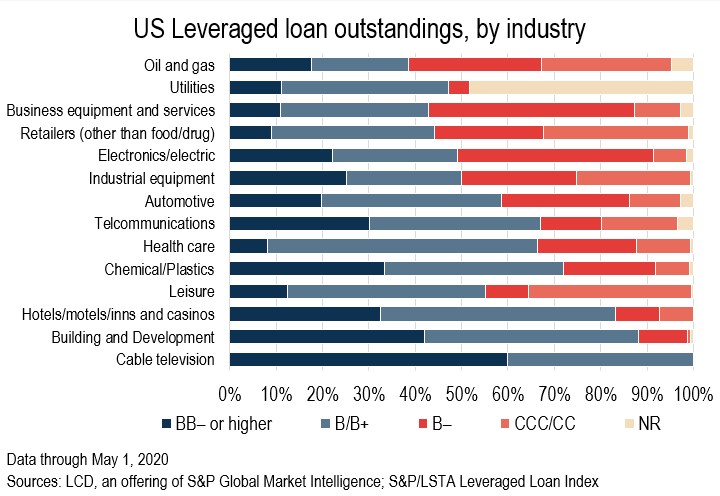 |
In a May 4 report by S&P Global Ratings, analyst Sarah Wyeth cites eight Index issuers rated CCC+ or lower, implying a 1-in-2 chance of defaulting. These include Academy Ltd., Ascena Retail Group Inc., Belk Department Stores LP, J. C. Penney Company Inc., Jo-Ann Stores Holdings Inc., Party City, Petco and Jill Acquisition LLC.
Eyemart Express Holdings LLC and Lands' End Inc. could also be downgraded from their current B– corporate credit rating (see “Shakeout In Retail, Restaurant Sectors Begins With J. Crew,” for the full report).
A default by the aforementioned triple-C rated retailers would push the retail default rate to a whopping 31.3%.
In terms of performance in the $1.2 trillion U.S. leveraged loan asset class, while issues in all sectors have lifted from their March 23 lows, retail has lagged significantly. The broader S&P/LSTA Index recovered almost 10 points from its March 23 low of 76.23, to 86.11 at April month-end. Loan debt issued by retail concerns (excluding food and drug), by comparison, was bid at an average of 72.72 cents on the dollar as of April 30, from 68.61 on March 23.
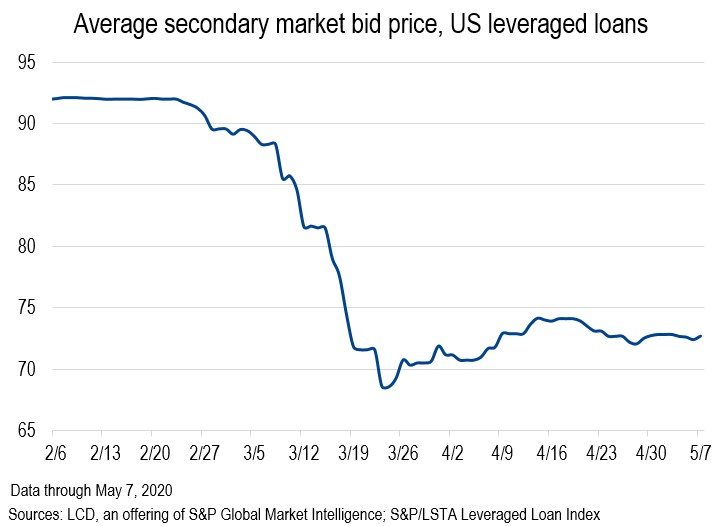 |
With the weighted average trading market bid of retail loans, per the Index, still well below 80, retail unsurprisingly has one of the highest proportion of loans below this specific measure of corporate distress.
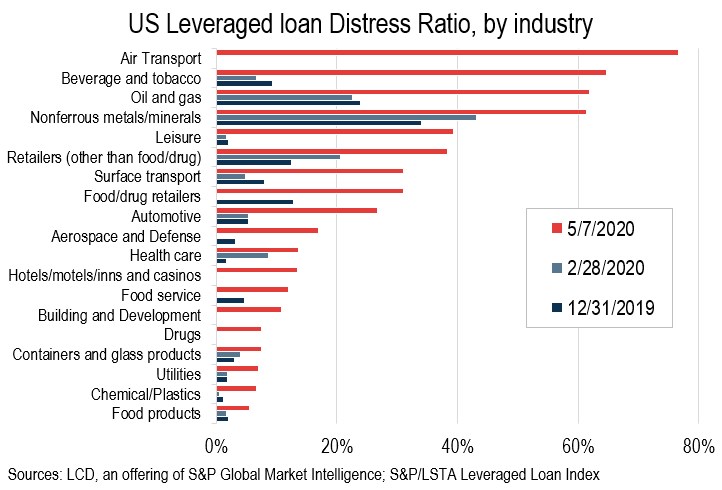 |
Among industry sectors with at least a 1% share of all U.S. leveraged loan outstandings, oil & gas and retail lead, with sector-level distress ratios of 62%, and 38%, respectively.
 |
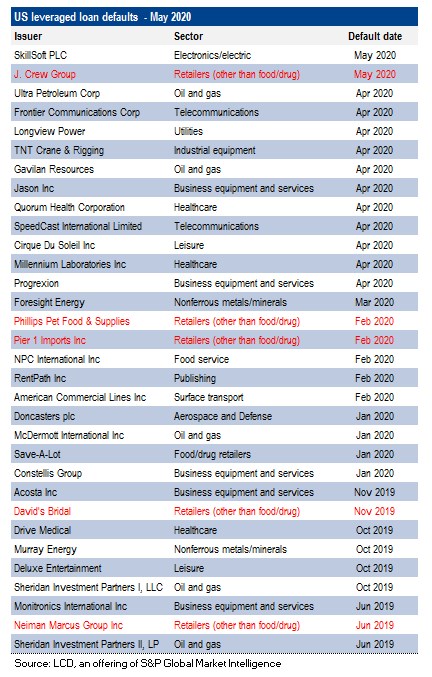 |
This story was written by Rachelle Kakouris. Rachelle is a Research Director at LCD.
Request a free trial of LCD to see more stories and historical data
LCD comps is an offering of S&P Global Market Intelligence. LCD’s subscription site offers complete news, analysis and data covering the global leveraged loan and high yield bond markets. You can learn more about LCD here.



